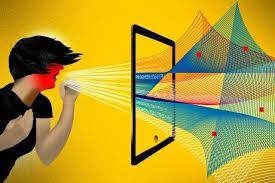Google is also using its smart devices for health monitoring, as is shown by the fact that they updated their Nest Hub with a sleep tracking feature. It uses the combination of radar and an algorithm to track sleep and to detect snoring and coughing. In the future, we can expect researchers to build on this work and to detect sleep apnea and cardiac arrests.
Meanwhile, researchers are trying to analyze the sound of coughing to create a cheap tool that could help us to diagnose and stop respiratory diseases like tuberculosis and COVID-19. Delaware’s Hyfe has two free smartphone apps (one for researchers and one for consumers) which use AI to track how often people cough, as well as to analyze the sound of it. To do this, they’re assembling a database of millions of recordings of people coughing using smartphones and other devices. They’re also training AI algorithms to spot patterns and to identify the type and the severity of diseases from the sound of the symptomatic coughing.
In other words, tuberculosis and COVID-19 may have distinctive cough sounds that the AI algorithm can recognize and use to tip off clinicians to the patient’s diagnosis before they even see the patient.
ResApp Health Ltd. has an app-based test for cough sounds that helps doctors to diagnose diseases including COPD, pneumonia, asthma and bronchitis. Patients are asked to hold their smartphone out and to record five coughs so that the app can analyze the sound and send the results to a doctor.






